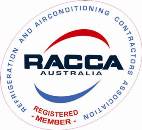Over the weekend Minister for the Environment, Greg Hunt, published a media release on Australia’s agreement on a major step forward to reduce HFC emissions. The media release can be found below:
Australia has played a key role in achieving major progress towards the global phase-down of hydrofluorocarbons (HFCs).
I am delighted that there has been a strong commitment to work towards an HFC phase-down agreement under the Montreal Protocol in 2016.
This week’s international meeting in Dubai agreed that HFCs should be controlled and phased down.
Australia was unanimously chosen, along with China, by 197 countries as one of two co-chairs for the contact group which helped draft and lead the adoption of the Dubai Roadmap for the phase down of HFCs.
This is both a fundamental step in helping to protect the ozone and to dramatically reduce future greenhouse gases. It is a critical contribution to the success of the Paris talks.
The Montreal Protocol is considered to be one of the most successful international environmental agreements ever negotiated and implemented.
The United Nations Environment Programme (UNEP) estimates that emissions of more than 135 billion tonnes of carbon dioxide equivalent have been averted from the atmosphere.
The original focus of the Protocol was to phase-out ozone-depleting gases, such as chlorofluorocarbons (CFCs). That focus has now turned to expanding the Montreal Protocol for the phase-down of HFCs which will be a key part of our approach to addressing climate change.
Used in domestic, commercial and industrial refrigeration and air conditioning equipment, and a non-flammable propellant in aerosols, HFCs have a significant detrimental warming effect on the environment.
Parties to the Montreal Protocol, including Australia, agreed to establish a formal group to begin discussions on the global phase-down.
This group will generate solutions to the challenges facing all parties – in both developed and developing countries – in phasing-out HFCs.
Already, the group has agreed to hold extraordinary sessions of the Meeting of Parties and the Open Ended Working Group during the year to facilitate negotiations.
Australia took a lead role in the reduction of the previous generation of harmful ozone depleting gases and is now working towards phasing-down the domestic use of HFCs by 85 per cent by 2036.
The agreement that has been reached is especially welcome given the potential to build momentum in the lead-up to Paris climate change talks in December.
I am confident that this new agreement will help the global community manage this threat to our environment.



